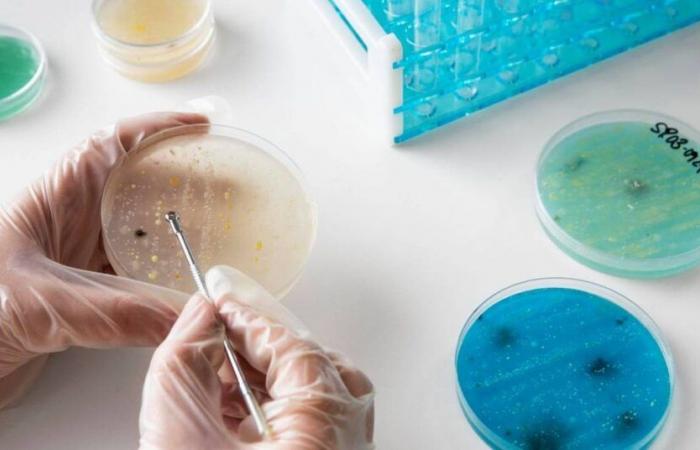
An international team, led by the University of California in San Diego (USA), has discovered that the exhibition during childhood to a bacterium called colibactina could be triggering a “Colorectal cancer epidemic” Among young adults.
In fact, the incidence of this type of oncological disease in adults under 50 has increased double in the last of the decades in several countries around the world due to early contact with this agent.
Colibactin, produced by some strains of They exhibited chillhas the ability to alter the genetic code of cells and their exposure in Early ages Print a distinctive firm in the DNA of the colon.
The result of the investigation is the first attempt to demonstrate a relevant increase in mutations related to colibactin and colorectal cancer in young people. However, It is still unknown How the infection of the bacteria producing this toxin occurs and how to fight it.
Genome imprint
The authors analyzed 981 Genomas of patients with colorectal cancer from 11 countries and the results showed that colibactin leaves after its specific patterns of DNA mutations.
These imprints are 3.3 times more frequent in adults under 40 years of age than in those diagnosed after 70 years. In addition, they are especially prevalent in countries with High incidence of colorectal cancer in young people.
“Mutational firms are a kind of historical record in the genome; they point out that exposure to colibactin in early stages of life promotes colorectal cancer of early appearance,” he says Ludmil Alexandrovfrom the University of California in San Diego and Supervisor del Estudio.
Exhibition before puberty
According to the CNIO researcher and first project signator Marcos Díaz Gay“When we started this project we did not plan to focus on the colorectal cancer of Early appearance”They planned to examine world patterns of this type of tumor.
“As we deepened the data, one of the most interesting and striking findings It was the frequency with which mutations related to colibactin appeared in cases of early appearance, ”says the scientist.
The harmful effects of this toxin begin soon. Mutations arise at an early stage of tumor development, which coincides with previous studies that show that such variations occur in the First 10 years of life.
“If someone acquires one of these driving mutations at 10 years, decades could be advanced in the development of colorectal cancer and suffer from 40 years Instead of 60 ”, says Alexandrov.
These findings hold the hypothesis that colibactin producing bacteria could be silently colonizing the colon of children, although the postdoctoral leader warns of continuing to investigate for “Establish causality”.
Own genetic footprint in the genome
As Díaz Gay explains, “each factor leaves a Own genetic footprint in the genome, a unique mutational firm that can help determine the origin of certain types of cancer. ”The investigation of these mutational firms in thousands of cancer genomes allows them to identify carcinogens until now unknown.
The authors outline questions that would want to address in the following phases. Among them, knowing how children are exposed to colibactin -producing bacteria and what can be done to prevent or mitigate that exposure or if there are more auspicious diets and lifestyles to the production of this toxic bacterium.
Currently, it is already studied whether the use of probiotics could safely eliminate harmful bacterial strains, and are being developed Early detection tests that analyze stool samples in search of mutations related to colibactin
Differences between countries
There are certain frequent mutational signatures in colorectal tumors of some countries, in particular of Argentina, Brazil, Colombia, Russia and Thailand. This suggests that local exposure can also contribute to cancer expression, although scientists still do not know why.
Thus affects climate change to allergies to pollen
See more
“It is possible that the causes vary from one country to another,” says Díaz-Gay. “This opens the door to specific prevention strategies for each region ”.
The implications of the study are very relevant and if the current trend is maintained, colorectal cancer could be the main cause of death For cancer in young adults in 2030, according to scientists.
It is article It was originally published in the SNC agency, the news agency Scientists of the Spanish Foundation for Science and Technology.





